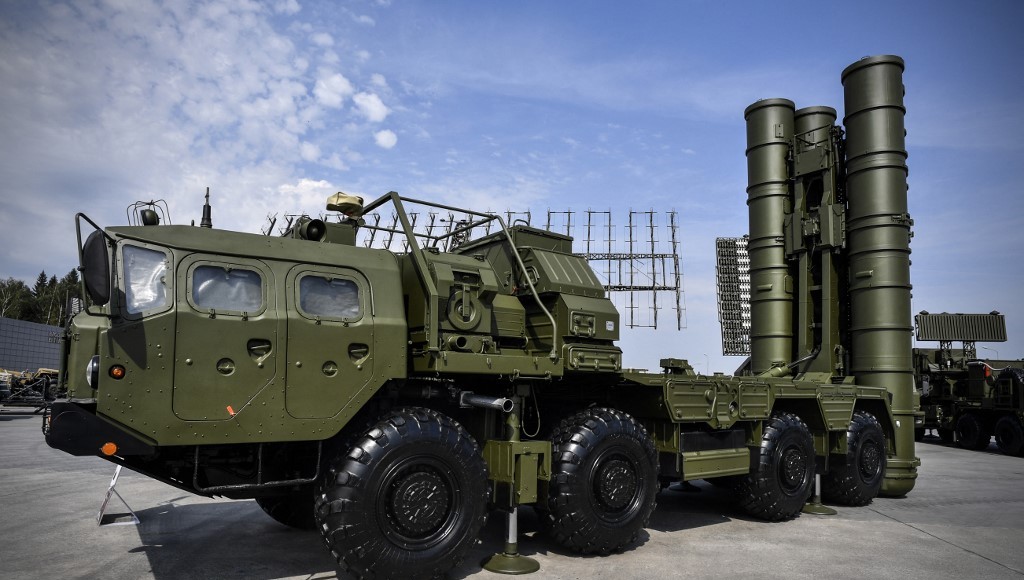Turkish President Recep Tayyip Erdoğan said on Thursday that Turkey and Russia have agreed not to release any information regarding the local production of Russian S-400 missile system parts in Turkey, local media outlets reported.
Speaking at a news conference with visiting Spanish Prime Minister Pedro Sanchez in Ankara, Erdoğan was asked about a recent report suggesting that some components of the S-400 missile system would be produced in Turkey and which parts those would be.
“We, Turkey and Russia, agreed not to make any statement about the plans for local production of S-400 parts. This is a sensitive issue,” Erdoğan said.
Earlier this week, the CEO of Rosoboronexport, Russia’s state-owned arms exporter told reporters at the Dubai Air Show that technology transfer for the production of parts for Russia’s S-400 air defense system had begun with Turkey.
Alexander Mikheev said they had begun to cooperate with Turkey on S-400 technology transfer and that parts of the missile defense system would be locally produced in Turkey.
The Rosoboronexport CEO also didn’t mention which parts Turkey would be producing; however, he said some agreements made with Turkey call for production of some parts of the system in Turkey.
Turkey’s purchase of S-400s from Russia strained ties with the United States and its NATO allies.
Despite warnings from the US and other NATO allies, Erdoğan brokered a deal worth $2.5 billion with Russian President Vladimir Putin for the S-400 missile system in 2017.
Ignoring Washington’s threats of sanctions, Turkey started taking delivery of the first S-400s in July 2019. In response, Washington removed Turkey from the F-35 Joint Strike Fighter program, in which Ankara was a manufacturer and buyer.
The S-400, a mobile surface-to-air missile system, could pose a risk to the NATO alliance as well as to the F-35, America’s most expensive weapons platform, according to Turkey’s Western allies.
Washington imposed sanctions in December on Turkey’s military procurement agency as punishment for its purchase of the Russian-made missile defense system under CAATSA, which mandates penalties for transactions deemed harmful to US interests.
Turkey’s Presidency of the Defense Industry (SSB), its chief İsmail Demir and three other officials were targeted by the sanctions, which include a ban on all US export licenses and authorizations to SSB as well as asset freezes and visa restrictions on Demir and the other individuals.
